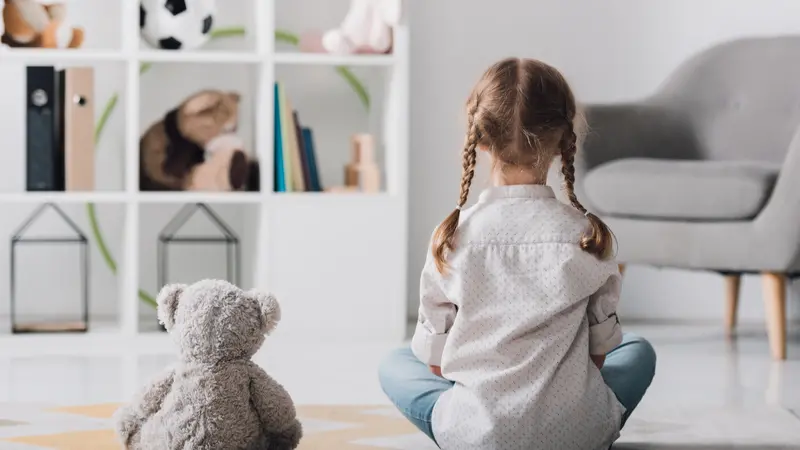

Mental and Behavioral Well-Being

Mental and Behavioral Well-Being
Children Can Benefit from Mindfulness
The many benefits of mindfulness for adults are well known—improved sleep, reduced pain, and anxiety control, among them. Experts say mindfulness and meditation are also useful for children and can help them manage stress, confront challenges, and build self-esteem.
According to studies, including one published in Frontiers in Psychology, benefits may include improved attention and focus in the classroom, improved academic performance, and decreased anxiety and depression.
Professionals say teaching mindfulness to children gives them tools to build confidence and cope with uncomfortable and challenging situations. The sooner they learn these skills, the better able they are to cultivate resilience and develop executive function, which is important for tasks like planning, reasoning, problem-solving, and building positive social relationships. Kid-friendly breathing techniques can help children manage their stress and calm their nervous system, say experts.
According to clinical psychologist Christopher Willard, a teaching associate at Harvard Medical School, the best way to introduce mindfulness to children is through informal practice in the company of family members. He recommends starting with a simple kindness meditation, first focusing on someone the child loves or respects and progressing to someone who may have frustrated the child, in both cases mentally sending those people kind thoughts.
Scott Rogers, founder and director of the Institute for Mindfulness Studies and of the University of Miami School of Law’s Mindfulness in Law program, says drawing on the elements of nature can help very young children learn the basics of mindfulness.
Author and developmental pediatrician Dr. Mark Bertin says preadolescents and teens can practice mindfulness generally the same way as adults. Practices geared for teens often contain language that is engaging for this age group.
REFERENCES
Mindful. (n.d.) Mindfulness for kids. https://www.mindful.org/mindfulness-for-kids/


 By
By






